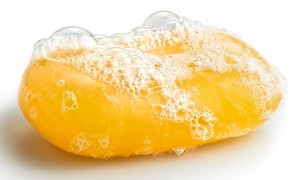Hygiene is a practice that forms the basis of our Western civilization. Over the course of our history, there appears to be a strong correlation in regards to the degree of sanitation within a community and its overall health and well-being. In our day and age, however, it seems as though certain brands of soap can have a more positive impact upon our health. For that reason, the pattern of consumption often follows a trend of sensation and a holistic focus upon the definitions of the product.
A recent study has put a major and prominent ingredient under the scrutiny of scientific testing. Triclosan has been one of the most ubiquitous ingredients in soaps that are branded as antibacterial for decades, and is used by millions and millions of people across the world. Consequently, these soaps cater to a massive market worth billions of dollars. Are they safe to use? One of the most concerning problems to date within the medical field is the issue with antibiotics and the relatively adaptive nature of the bacteria that evolve traits to help combat the substances that threaten them.
According to the article linked above, there appeared to be no significant difference between antibacterial and normal soap. Based upon a correlational study using human subjects, the 20 stains of dangerous bacteria were relatively unharmed by the triclosan-rich soap relative to non-antibacterial soap. The breadth of samples of bacteria and the data concerning the soap’s impact upon those strains provides convincing evidence that there really is no difference. In fact, it may be argued that a rational person should just save his money rather than investing a few more dollars into a soap that has no relative benefit. Hygiene is invariably good, and so is soap; however, money is precious and money wasted on a product with a barely marginal benefit is a waste.
Perhaps it is possible that the ingredient triclosan has, throughout the years, diminished in effectiveness in the face of a foe that is constantly evolving to resist its cleansing power? Is it time to retire an ingredient that has lost its once effective edge over bacteria? There are clearly many opinions concerning this debate.
Personally, I find that if people insist upon buying a product that they feel improves their quality of life, they should be able to. Although it may be disadvantageous, the power of the market will eventually lead to triclosan diminishing in effectiveness and thus a reduction in prices as well as demand for it plummets. In the meantime, the FDA will continue to look into the the claim made by many that triclosan is indeed a harmful chemical to human health that yields no benefit to even its use in any sort of potency. If the FDA does indeed find that triclosan harms the health of humans, then I believe that it should be regulated, and, in many cases banned as it would then provide absolutely no redeeming qualities to its use.


